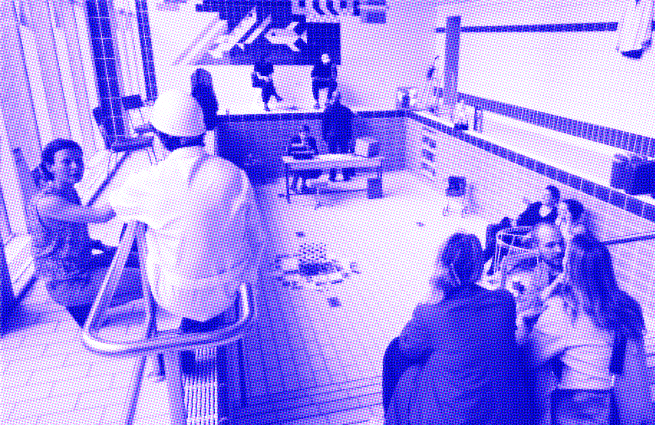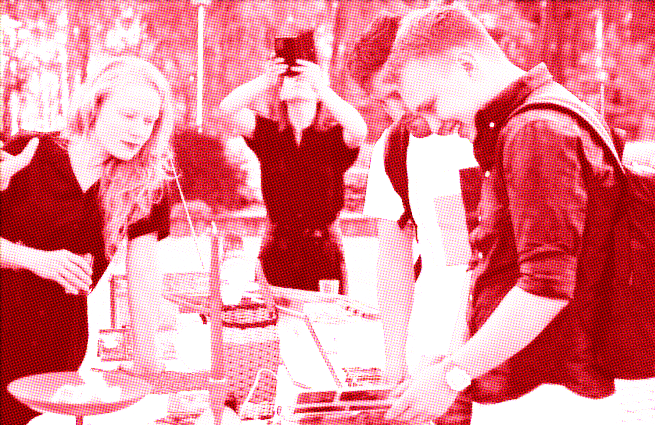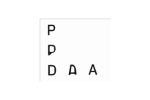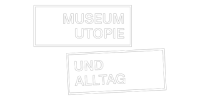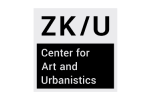MONO - functional towns are settlements once built for a single purpose. Public knowledge and memory of such towns become fragile after the main industry is disrupted. Impacted by major socio-political pivots, these disruptions are also linked to human capacity to apply meanings to the current and past, and therefore to project the future. We organize performative participatory events to search for the forgotten, as well as to invent new meanings. This inspires us to look beyond mono-imaginaries and to ask if these towns’ futures can encompass not only one direction, but MORE.
We look at cities from the perspective of their dwellers’ abilities to collectively negotiate and take care of public knowledge produced among and about them. Public knowledge and memory of the towns once connected to only one industrial function is especially fragile after this function disappears. Because disruptions in industrial history – especially when connected to major socio-political pivots – are often also disruptions in human capacity to apply meanings to the current and past, and therefore to project the future. This project develops a combination of research and performative measures for the cases of interrupted urban development and disrupted production of collective urban public knowledge. It nurtures place-specific formats of applied, negotiated, never finished memorialization and meaning making in and about disrupted towns (with the primary focus on mono-functional towns after their productive phase). It blends the registers of institutions, rituals, communities, infrastructures, individuals, artifacts, dreams, media and norms, in order to open up spaces where memory and meaning making can strengthen each other.
Our method is to understand, to sense and to practically intervene in the paths of such towns’ development. Industry is approached here beyond solely production, and is considered as the whole way of life – enabled through housing and other welfare infrastructures, through certain society/nature relations, through planning timelines on individual and urban levels, through the particular new expectations emerging after the industry’s productive phase is over, etc. In addition to it, industry is approached in a variety of its facets and conditions, such as industrialization, de-industrialization and re-industrialization. We look for long-term lineages of the core industry of disrupted mono-functional towns in the shared knowledge and values, landscapes, lifestyles, professionalization milieus and the points of economic growth. Via urbanist research and resulting semi-orchestrated public events, we identify and empower stakeholders and users of memory and of imagination about towns and their underlying drivers. Such events are meant to interpose artifacts, affects, expertise, modes of knowing, and individual memories, and thus to explore and test a scenario of a town-specific institution building.
Monomore Methodology
How do we choose locations?
This project develops a format of applied, negotiated, never finished memorialization in mono-functional towns after their productive phase. We try to understand, to sense and to practically intervene in the determined by industry paths of such towns’ development.
Industry is approached here beyond solely production, and is considered as the whole way of life – enabled through housing and other welfare infrastructures, through certain society/nature relations, through planning timelines on individual and urban levels, through the particular new expectations emerging after the industry’s productive phase is over, etc. In addition to it, industry is approached in a variety of its facets and conditions, such as industrialization, de-industrialization, re-industrialization, etc. We look for long-term lineages of the core industry of mono-functional towns in the shared knowledge and values, landscapes, lifestyles, professionalization milieus and the points of economic growth. Via urbanist research and following semi-orchestrated public events, we identify and empower stakeholders and users of memory and of imagination about towns and their industrial drivers. Such events are meant to interpose artifacts, affects, expertise, modes of knowing, and individual memories, and thus to explore and test a scenario of a town-specific institution building.




